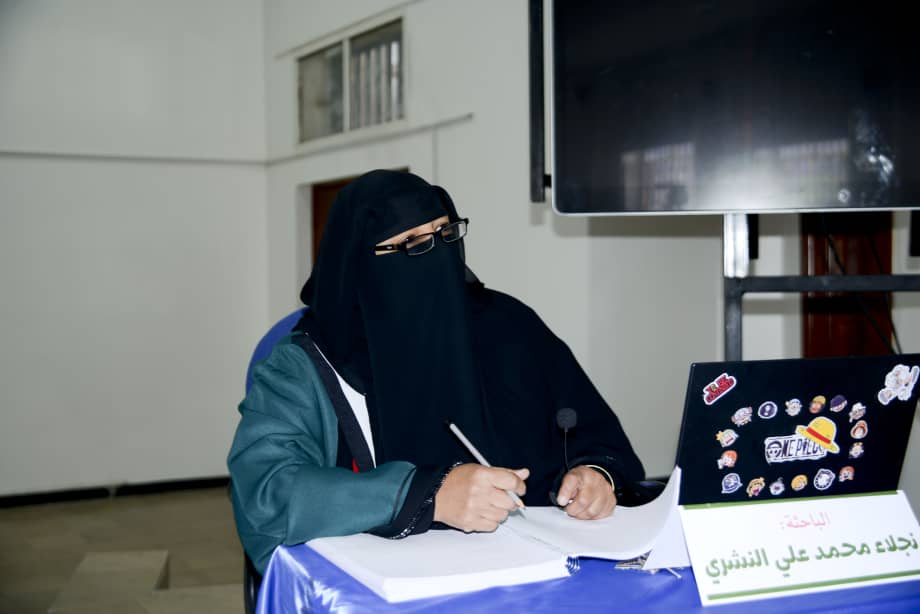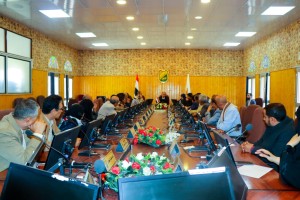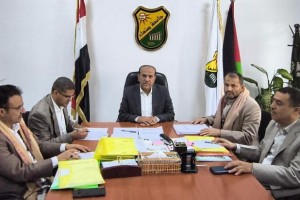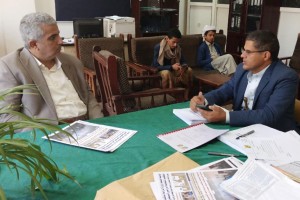Public MA Viva-Voce Examination of Ms. Najlaa Mohammad Ali Al-Nashri, from the Department of English Language & Literature, Faculty of Arts & Humanities – Sana’a University
- Categories Letters and Promotions - Graduate Studies, news, Regulations - Postgraduate Studies
- Date February 7, 2025

Ms. Najlaa Mohammad Ali Al-Nashri has successfully awarded her MA Degree from the Department of English Language and Literature, Faculty of Arts & Humanities at Sana’a University, majoring in Comparative Literature.
She achieved an impressive score of 95, earning an excellent grade for her thesis titled “The Concept of Rebellion in Selected Poems of Percy Shelley and Lutfi Aman: A Comparative Study” The Viv-Voce took place on Tuesday, 5th of Sha’ban, 1446 Hijri, corresponding to February 4, 2025.
The Viva-Voce Committee, which was formed based on a resolution issued by the Post-Graduate Studies and Scientific Research Council, consisted of the following:
1. Prof. Munir Ahmed Al-Aghbari, External Examiner, Al-Bayda University, Chair.
2. Prof. Rawya Ali Al-Kumaim, Main Supervisor, Sana’a University, Member.
3. Prof. Mohammad Ahmed Sharafuddin, Internal Examiner, Sana’a University, Member.
The primary objective of Al-Nashri’s thesis was to explore the thematic similarities and differences regarding the concept of rebellion as articulated in the poetry of Percy Bysshe Shelley and Lutfi Jaafar Aman, focusing on selected works from each poet.
In her thesis findings, Al-Nashri identified several significant conclusions. Notably, both Percy Shelley and Lutfi Aman emerge as prominent rebel poets of their respective eras, engaging with themes of injustice, inequality, and corruption in their poetic expressions. They articulate their dissent against established institutions and contend that injustice and exploitation are fundamental causes of societal issues, advocating for love and justice as potential resolutions. However, their perspectives diverge due to their unique cultural and historical contexts. Shelley, a nineteenth-century English poet, was shaped by Western radical ideologies and the sociopolitical turbulence of his time. Conversely, Aman, a twentieth-century Yemeni poet, was influenced by the social and political challenges facing Arab nations, particularly in southern Yemen during the era of British colonialism. These contextual differences enrich their respective works and highlight how varied cultural backgrounds can deepen our understanding of the human experience.
Additionally, Al-Nashri proposed several recommendations emphasizing the importance of comparative studies in enhancing our comprehension of how different cultures interpret the phenomenon of rebellion. She argued that such studies uncover deeper meanings and challenge prevailing stereotypes often propagated by media outlets. Both Arab and Western media can contribute to the misrepresentation of rebellion by oversimplifying complex social movements and framing rebels within binary narratives of heroism or villainy. Furthermore, these media tend to emphasize violent actions while neglecting peaceful protests, reflecting cultural biases that hinder an accurate understanding of local perspectives. Addressing these issues is essential for a more nuanced comprehension of rebellion and its significance across various contexts.
The Viva-Voce was attended by several academics, researchers, students, and several colleagues and family members of the researcher.
Discover more from Sana'a University
Subscribe to get the latest posts sent to your email.
Previous post






